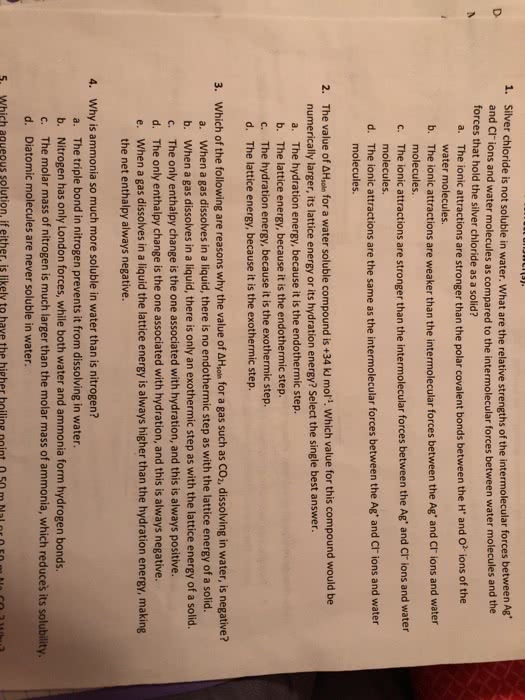CHEM 122 Lecture Notes - Lecture 1: Lattice Energy, Ionic Compound, Reagent
Document Summary
Polar molecules including ions: london dispersion forces, non polar molecules, hydrogen bonding, oxygen, nitrogen, uorine. Spontaneous process: a process that, once started, proceeds on its own without a continuous external in uence. The total energy of the universe remains constant (energy cannot be created nor destroyed: in a system, if heat is taken in, there will be a positive h and is therefore endothermic. This is also non-spontaneous (reactant favoured: in a system, if heat is being released, there will be a negative h and is therefore exothermic. This is spontaneous (product favoured: entropy (s): the amount of molecular randomness in a system, how can you change entropy, phase change, complexity of the molecule. The higher the mass the more random: mixing dissolving. This will increase entropy: reactions that increase the number of moles of a gas. If s is negative, it is non spontaneous. In general, a solute/solvent will mix if the intermolecular forces are similar.


